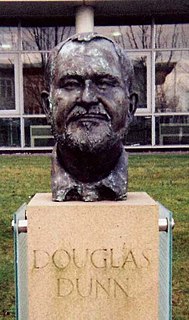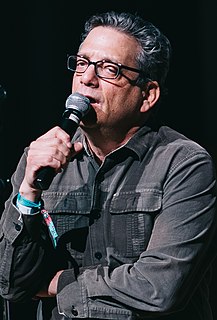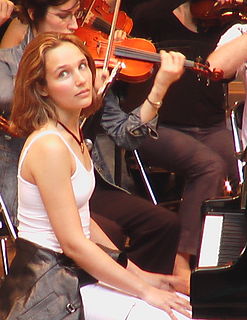A Quote by William Zinsser
I try to make what I have written tighter, stronger and more precise, eliminating every element that's not doing useful work. Then I go over it once more, reading it aloud, and am always amazed at how much clutter can still be cut.
Related Quotes
When I'm editing, I tend to cut, go back over it, cut, go back over it, cut, so by the time I'm done, even with a cut, I don't have a rough cut and then work on it so much. I have a pretty rigorous cut of the movie that's usually in the range of what the final movie is going to be. It doesn't mean I don't work on it a lot after that, but I get it into a shape so I feel I can really tell what it needs, or at least it's ready to show people.
If we are always reading aloud something that is more difficult than children can read themselves then when they come to that book later, or books like that, they will be able to read them - which is why even a fifth grade teacher, even a tenth grade teacher, should still be reading to children aloud. There is always something that is too intractable for kids to read on their own.
Studies show that over 80 percent of Americans do not have their dream job. If more knew how to build organizations that inspire, we could live in a world in which that statistic was the reverse - a world in which over 80 percent of people loved their jobs. People who love going to work are more productive and more creative. They go home happier and have happier families. They treat their colleagues and clients and customers better. Inspired employees make for stronger companies and stronger economies.
There are two aspects to making movies: One is the feeling of wanting to push myself into stuff that I don't know how to do. Then there's the other impulse to try and earn a living. I want to be careful about not confusing those too much - not that those things can't have a healthy overlap. Plenty of people start out making work that isn't terribly commercial, and then make work that's more commercial but still good. You just want to watch out for that thing where you tell yourself that you're doing your best work when you're not.
There's always the syndrome of the parent-child relationship: when someone has known you since you were very young, it doesn't matter how much more independent, how much older or more mature you get - there is still that element, the dynamic of the relationship that is very hard to successfully transform, and that has nothing to do with the music-making, in the end.
The last start of spring training, my (cut fastball) was okay. It just wasn't what I wanted it to be. I tried to work on making it cut more and do more. I think that set (the forearm) off ... trying to make it move a lot, cut a lot. I'm just going to back off and trust it a little bit more and not try and push that.
It seems that the more places I see and experience, the bigger I realize the world to be. The more I become aware of, the more I realize how relatively little I know of it, how many places I have still to go, how much more there is to learn. Maybe that's enlightenment enough - to know that there is no final resting place of the mind, no moment of smug clarity. Perhaps wisdom, at least for me, means realizing how small I am, and unwise, and how far I have yet to go.
If I read a script and the subject stays with me - then that's when I want to go to work. Before, I was very addicted to being on set, and I was doing three or four movies a year for many years. Now, fortunately, I can go to work only when I am passionate about a project, and the rest of the time, I can live my life. I'm not interested in doing movies just as a marathon. When I go to work now, I have much more to give. But the other way, you get empty.
I do have more directorial control over animation, because it's like trial and error: If something doesn't work, you can always go back and change certain things. Whereas in live action, every day is a challenge, and you have to make decisions on an hourly basis. So in live action I have more freedom as a director, but in animation, I have more control over the final product.






































